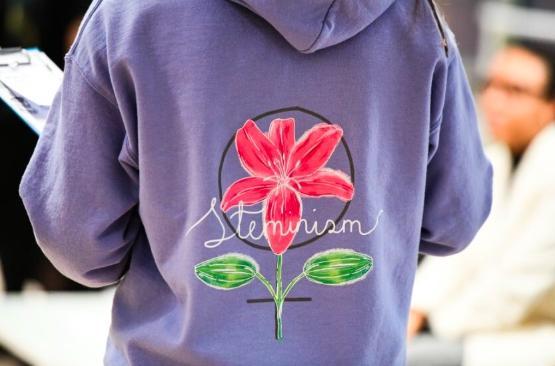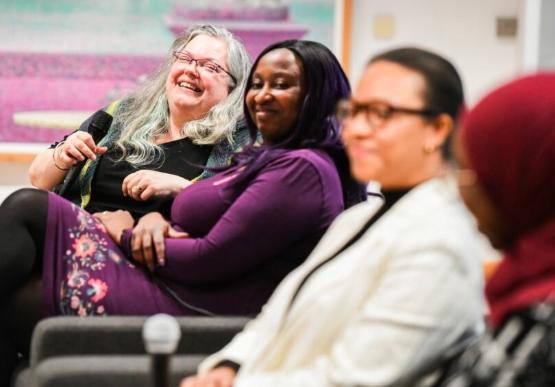Speed networking event flies flag for STEMinism
Are you interested in science, technology, engineering and maths? Would you like to connect with experts in the field to grow your network of contacts?

The University of Bradford's STEMinism society exists to promote 'STEM' subjects, particularly to women and girls, and having held its inaugural event last year, it will stage a 'speed networking' event on Wednesday February 19.
Special guests include industry expert and alumna Saskia Lear, who graduated in 1997 and is also a guest lecturer and member of the university’s Court. She is principal engineer for JBA Consulting and works on a range of engineering projects for the Environment Agency.
She will be joined by fellow graduate Vee Mapunde, who earned her degree in 2003 and who currently works for the National Institute of Health and Care Research (the funding arm of the NHS) and is a one-woman Dragons’ Den, helping guide health-tech start-ups.
Dr Andrea Cullen, who graduated in 2004 with a PhD in Supply Chain Management and CEO and co-founder of Capslock, which aims to remove barriers to those wanting to purse careers in the 'cyber' tech area.
Zara Iqbal graduated in 2017 with a BSc in Accounting, Finance and Economics and is Principal Data Management Professional at HM Revenue & Customs.
The event is from 5pm to 8.30pm in the Small Hall, University of Bradford Campus. Tickets £3 for students and £5 for non-students. Or use the QR code below.

STEMinism Society president Maleeha Abbass said: "This event is open to everyone who would like to learn about the inspiring experiences of being a woman in the workplace. It is an opportunity to develop your networking skills as well as gain valuable insight into the non-linear progression of a woman's career and how each stage led the speakers to where they are now."
Attendees are encouraged to engage in discussions about their own experiences, seeking guidance on the next steps in their journey. Once the networking sessions are complete, attendees are invited to enjoy a casual atmosphere with pizza and nibbles and continue to foster connections.
Last year's event was attended by graduate Stephanie Travers (pictured below), former Petronas Trackside Fluid Engineer in Formula 1, who is now Impact Manager for Project 44/Mission 44, a charity founded by Sir Lewis Hamilton which aims to champion change by backing organisations that support young people to overcome social injustice, so they can thrive in education and employment, and feel empowered to shape the world they live in.

The STEMinism Society was created by student Alex Troup, who said: “The idea behind STEMinism was to create a support network for women in STEM subjects, partly because there are so few of us but also to combat any kind of subconscious bias young girls and women may have encountered during their education."
